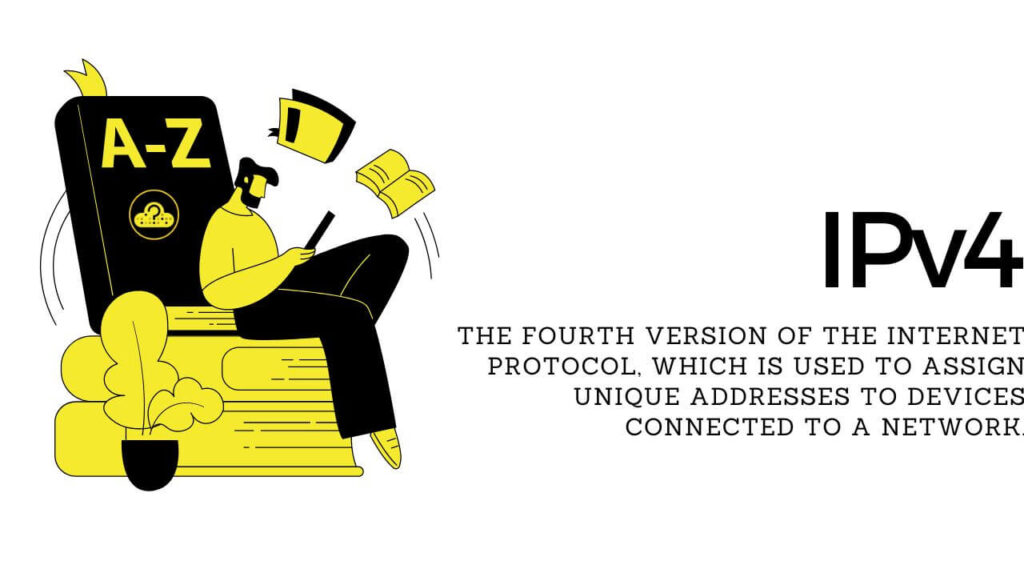What Is IPv4?
- Short Definition:
- IPv4 stands for Internet Protocol version 4 – the fourth version of the Internet Protocol, which is used to assign unique addresses to devices connected to a network.
- Extended Definition:
- IPv4, or Internet Protocol version 4, is a widely used network protocol that assigns unique numerical addresses to devices connected to a network. Its network addresses are 32-bit numbers expressed in decimal format, typically divided into four groups of numbers separated by periods (e.g., 192.168.0.1).
Each device on a network, such as a computer, smartphone, or server, requires an IPv4 address to establish communication and identify itself on the Internet. However, due to the increasing number of devices connected to the Internet, the availability of unique addresses has become limited.
This limitation led to the development of IPv6 (Internet Protocol version 6), which uses 128-bit addresses and provides a much larger pool of unique addresses to accommodate the growing demands of the expanding Internet. Nonetheless, this version remains widely used, and many networks still rely on it for their operations.

For more definitions, check out our dedicated Definitions List.







